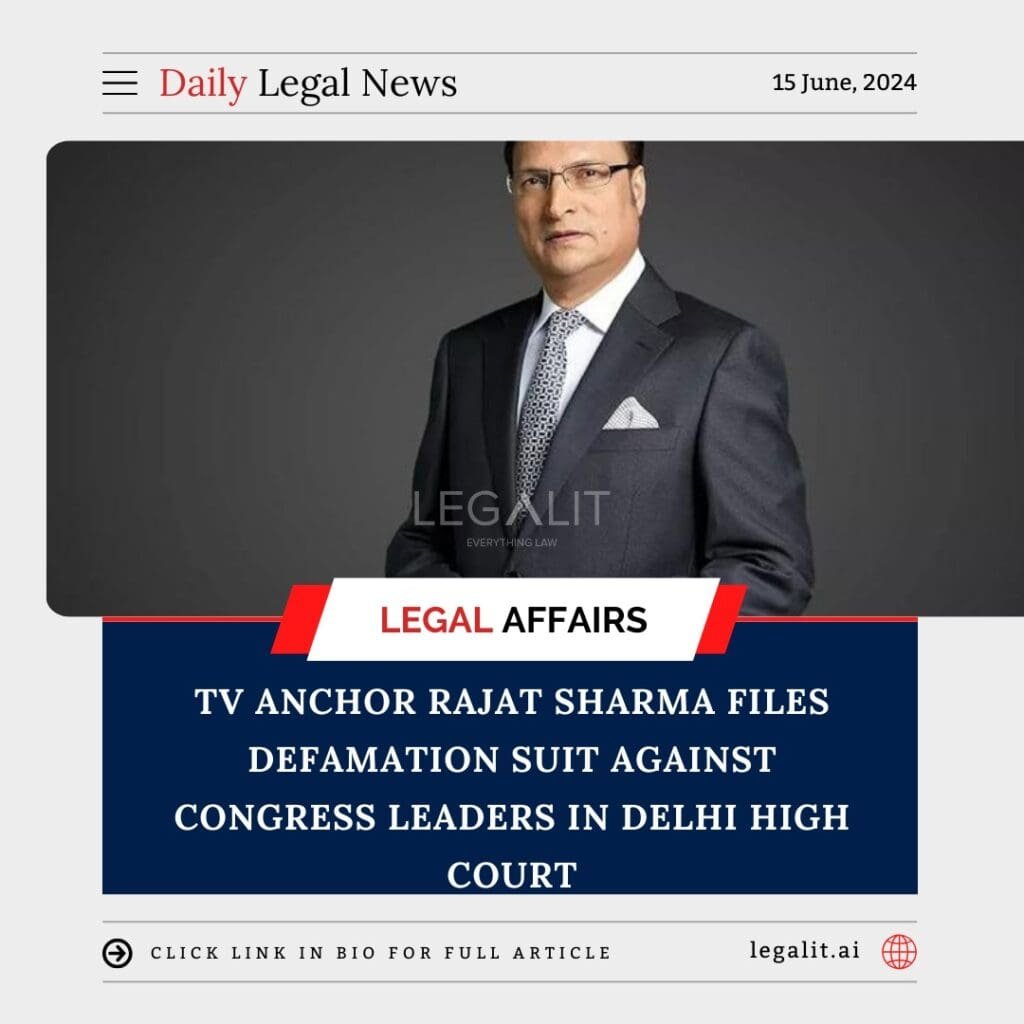
Renowned television anchor and journalist Rajat Sharma has filed a defamation suit in the Delhi High Court against prominent Congress leaders, accusing them of making false and defamatory statements against him. This legal action highlights the ongoing tensions between media personalities and political figures in India.
Background of the Case
Rajat Sharma, the Chairman and Editor-in-Chief of India TV, alleges that certain Congress leaders made baseless accusations against him during public statements and social media posts. These statements, according to Sharma, were intended to damage his reputation and professional credibility.
Legal Basis for the Defamation Suit
In his petition, Sharma argues that the statements made by the Congress leaders were defamatory, malicious, and intended to tarnish his public image. The suit seeks damages for the harm caused to his reputation and an injunction to prevent the Congress leaders from making further defamatory statements.
Key Points of the Allegations
- False Accusations:
- Sharma contends that the Congress leaders accused him of being biased in his journalism and acting as a mouthpiece for certain political interests, without any substantive evidence to support these claims.
- Impact on Reputation:
- The defamatory statements have allegedly caused significant harm to Sharma’s reputation, affecting his professional standing and personal life. Sharma’s petition includes details of the damage to his public image and the emotional distress caused by the accusations.
- Request for Relief:
- The defamation suit seeks monetary compensation for the damages caused and a public apology from the Congress leaders. Additionally, Sharma has requested the court to issue an order restraining the defendants from making any further defamatory remarks against him.
Legal Proceedings and Next Steps
The Delhi High Court has accepted the petition and is expected to schedule hearings to examine the evidence and arguments presented by both parties. The court’s decision in this high-profile case could set a significant precedent for defamation law in India, particularly involving public figures and political leaders.
Broader Implications
This case underscores the contentious relationship between the media and political entities in India. It highlights the challenges journalists face in maintaining their reputation amidst political scrutiny and the potential for legal recourse in defending against defamatory attacks.